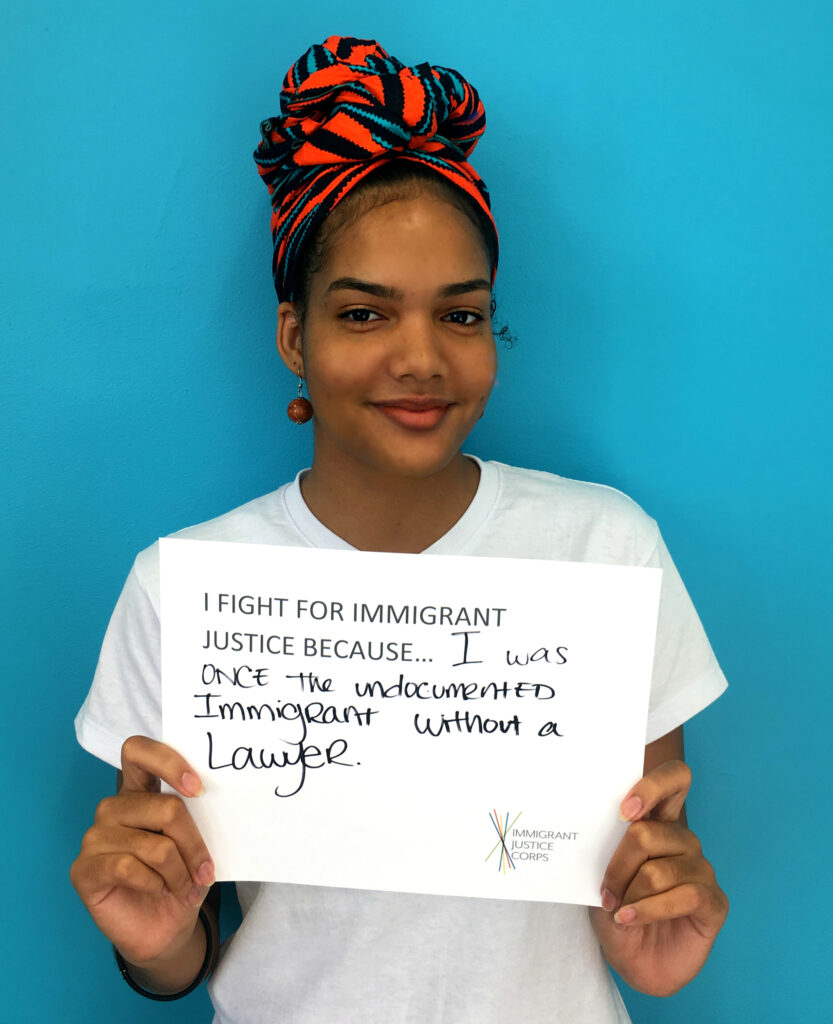Where are they now?: Jessica Rofé
In the “Where are they now?” series, we introduce you to former IJC Fellows and share their stories — how they became a Fellow and how their Fellowship experience informs their work today.
Jessica Rofé, a 2014 Justice Fellow with Brooklyn Defender Services, now serves as Deputy Director of the New York University School of Law’s Immigrant Rights Clinic. Jessica is also wrapping up a semester as a Visiting Assistant Clinical Professor with the University of California, Irvine School of Law’s Immigrant Rights Clinic.
What was most fulfilling during your fellowship experience? Value most?
I really value the community of people, all of whom are dedicated to immigrant rights and doing different types of work. IJC created a community of mutual support, people we can lean on at different moments for their expertise and for their experiences. Sitting on a panel with Jojo Annobil in the fall of 2023, I learned that every person in our first cohort is still doing immigration work, and I think it’s in part a testament to the community fostered by the Fellowship program, which encourages us to learn together, break bread together, and invest in our relationships both within and across institutions.
How/why did you become interested in immigration law?
Questions of racial construction, of class difference, of membership and belonging, and of minoritization have always been at the forefront of my mind, in part because of my own identities and upbringing. In law school, friends of mine who had known me since I was an undergraduate and knew my interests recommended I pursue the Immigrant Rights Clinic – when I did, I was privileged to learn from brilliant immigration legal advocates, and I began to think about how the intersection of criminal and immigration law performs the work of exclusion and community disruption, and how lawyers can best advocate for individuals and support movements for immigrant rights.
What is advice that you would give to a Fellow on their first day? What is something you wish you had known when you started the fellowship?
I recommend that Fellows use their time as an opportunity to build connection with the local community, with directly-impacted community members, with their loved ones, with their institutional placement, and with other Fellows both within and across fellowship years. This work can be challenging, and in engaging the work, it’s so important to have community, and not just a community of lawyers.
How can non-lawyers work to support immigrants and the immigrant rights movement?
Lawyers are but one small component in the movement for immigrant rights. So, when we think about what non-lawyers can do, there’s so much: there’s organizing, action participation, action support, political mobilization, media development, storytelling, and supporting other intersectional movements for social and economic rights.
